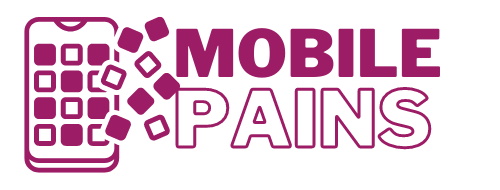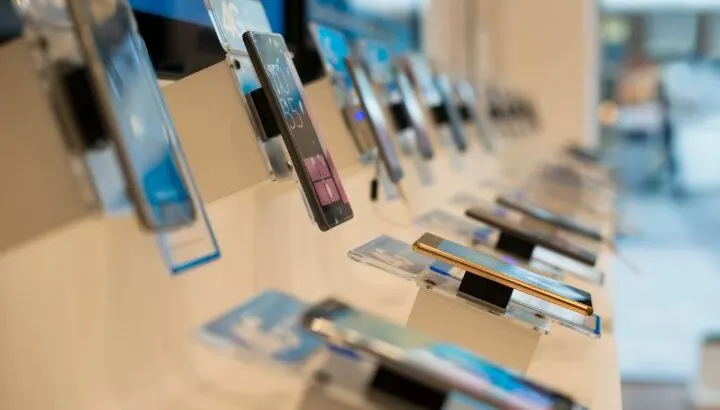Purchasing a new smartphone can be costly for many. Financing a phone lets you divide the expense of a phone into monthly installments over a span of 1 to 2 years.
If you’re able to, however, paying off your phone early is not a bad idea. It helps reduce interest costs, lower your monthly bills, and free up future cash flow. Canceling the payment contract, however, may involve a penalty fee.
This article will help you decide if you are better off paying your debt early or waiting till the end of your plan.
- Do you save money by paying off your phone?
- The cost of paying off your phone plan before it ends
- Does paying off your phone reduce your monthly bill?
- Unlocking your phone after paying off
- Can you keep your phone once your contract ends?
- Paying your phone in full vs financing
- Cancel phone plan shortly after purchase
Do you save money by paying off your phone?
When you pay off your phone early, you free up some cash over the coming months. But whether or not you save money by paying off your phone depends on your contract.
Many mobile companies like Verizon or Apple’s upgrade program offer a payment plan with 0% interest, so in this case, paying off the full amount will not save you money.
If your contract charges an interest rate, then paying off your phone early will of course save you money on the amount of interest you pay.
Also, many payment plans include a monthly bonus discount on data allowance. If you decide to pay off your phone early, you will not benefit from these discounts.
You should also take into consideration the cancellation charges that most contracts entail. If those charges are high, it may be best to stick with the contract until it ends to save money.
The cost of paying off your phone plan before it ends
The fee for paying off your phone plan before its term is known as Early Termination Fee (ETF). This ETF varies among mobile phone companies. In most cases, these fees are very high.
For example, if you signed up for a 12-month contract and want to cancel in the second month, you might have to pay 10 months’ worth of dues.
For Verizon, the ETF is $350. After each month of service, this ETF decreases by $15. In other words, the longer you stick to the contract, the lower the ETF.
With that in mind, it’s important to have a look at how much time is left in your contract and calculate the additional costs before you decide.
Does paying off your phone reduce your monthly bill?
When purchasing a phone on a payment plan, at the end of every billing cycle, your bill will include your monthly phone payment charge in addition to your costs for talk, text, and data plan.
Paying off your phone payments removes the installments from your monthly bill and, in most cases, lowers it.
Depending on your carrier and payment plan, however, you may be receiving promotional credits or discounts on your data allowance or on other services. This discount will be lost once you pay off your phone.
For example, when you finance a phone from Verizon, you get a $5/month loyalty discount on data allowance after 3 months of service; and an additional $5/month applies after 9 months.
If you pay off early, though your monthly phone payment will no longer appear on your bill, neither will the discount.
So, before you decide to pay off your phone or not, subtract your monthly phone bill from your monthly expenses to get your estimated monthly cost.
Unlocking your phone after paying off
After you’ve paid off your phone completely, you can get it unlocked. A locked phone means that you cannot use the smartphone on another network. E.g., you can’t use an AT&T SIM card in a T-Mobile Verizon
You are legally entitled to get your phone unlocked after paying off, whether you pay off your phone installments completely according to the contract, or you pay an early termination fee and cancel the contract early.
All the national-level providers in the US including Verizon, Sprint, AT&T, and others, are compelled by law to unlock your phone once you’ve fully paid off the device. This means that you’ll be able to use it on other networks, including internationally.
Can you keep your phone once your contract ends?

Once the contract ends, you can keep the phone as you have completed all your payment terms. It belongs to you, you can keep it, sell it, or use it with another carrier network.
When you’re coming to the end of your contract, your provider will inform you about options to upgrade your handset. Usually, you can choose to upgrade to a new phone after a minimum of 12 months.
You can continue to keep it for 24 months, at that point it’s yours without additional monthly payments.
Paying your phone in full vs financing
It is often better to pay for the phone upfront, especially if you already have other payments to face each month.
If you have a tight budget however, a payment plan can be a good option, especially one with a 0% interest rate.
Keep in mind that when financing your phone, it will remain locked and can only be used on the network of the financing carrier until it has been fully paid for. You will be tied to that network, won’t be able to use it internationally without additional fees, and won’t be able to sell it.
Here are the main pros & cons of financing a phone:
Pro: no big upfront payment necessary
You don’t need to come up with the full price of the phone upfront. Instead of breaking the bank, you can pay it off on a monthly basis. If you’ve got your eyes set on the latest iPhone or Samsung model, you can get it right now.
Pro: keep your savings for something else
Savings are a safety cushion you can use in case of emergency. If you buy the phone up front, you may not have any savings for emergencies – or for an upcoming vacation.
Pro: 0% interest financing is available
Mobile financing can be a money-saver if you qualify for a 0% interest deal, and pay before the promotional period ends.
Con: contractual binding
You are locked into a contract for 12 months or longer. In case of cancellation, you’ll likely have to pay an ETF.
Con: monthly bills
You will have additional monthly payments to worry about, which you won’t be able to add to your savings. There also may be some hidden fees you will be paying for your phone.
Con: ownership and phone locking
You don’t own the phone until you pay it off completely. Your phone will also remain locked and you won’t be able to switch carriers until you finish paying off your debt.
Con: depreciation
The monetary value of any asset, including your smartphone, decreases over time. So, when you’re in a contract financing a phone, you still pay for the original value even if it has dropped over time, due to wear and tear, or obsolescence with the launch of new models and the release of new software.
Cancel phone plan shortly after purchase
You can cancel your phone plan shortly after purchase, during the first 14 days of your contract, free of charge.
You can also cancel your contract without any additional fee e.g. if your network provider raises the monthly fee midway through.
After that period, you would need to pay the cancellation charges, which can be quite high. By paying the fee, you can cancel your phone plan at any time, although some phone companies require a 30 days notice.

